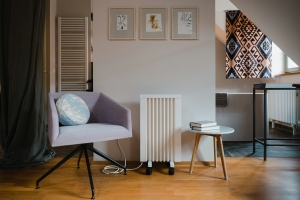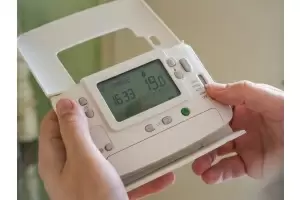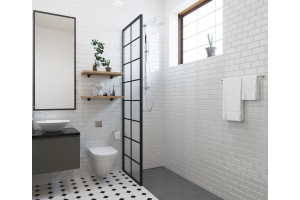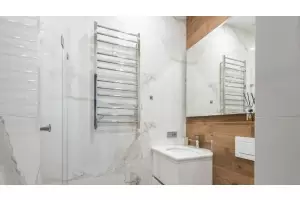
As we all wind down from the Christmas festivities and the reality of a wet and windy January sets in, many of us are looking for innovative ways to reduce the costs of our heating bills. Here at TradePlumbing, we believe an excellent way to help reduce the costs of your energy bills this season could be investing in some electric heaters for your home; no longer an ugly white box in your room, we’re confident you’ll find the perfect size and style for your home without compromising your decor or purse strings.
With this in mind, discover our comprehensive buying guide to electric heat sources.
Size
Where you live, the size of your room and the quality of your insulation will all affect the size and wattage of the electric radiators you need. The maximum power output of your radiator is measured in watts, which also establishes the entire area it can heat.
Generally, opt for a higher-wattage radiator than you think you need to ensure your home is toasty warm. The great thing about electric radiators is that once your room achieves your desired temperature, these powerful radiators will consume less energy, and you’ll see the benefits in your energy bills.
Remember to consider the depth of your radiators when picking the perfect one for your home to stop them from intruding into your space.
Energy Efficient
Unlike gas central heating systems, which naturally lose energy through the pipes as water goes from the boiler to your radiators, electric radiators are 100% efficient at the point of use as they operate on a modular system and only heat the areas you desire to be warm.
Electric radiators provide complete control over every heating zone in your home since each unit has its own in-built thermostat and programming controls, meaning you'll only consume what is necessary.
Types of Electric Radiators
Electric radiators use a combination of convection and radiation to transmit heat.
Dry Thermal Elements: A dry thermal element is ideal for quick and precise heat management. The thermostat on these radiators regulates the rapid heating and cooling of thin, wire-like metal elements inside, which helps to precisely and swiftly achieve the appropriate temperature.
Dry thermal radiators are lighter than other options on the market and, as a result, produce a more elegant look than their thermal fluid equivalents.
Thermal Fluids: Thermal fluids and thermodynamic gels are used principally for their heat retention properties. Contained within the body of the radiator, these thermal liquids spread evenly across the radiator’s inner surfaces to ensure even heat distribution across the room. The liquids are specially formulated for optimum heat retention, making them an excellent energy-efficient choice for larger rooms.
Dry Stone Elements: Higher intensity heat is produced by dry stone elements, making them perfect for spaces with high ceilings, open floor plans, and listed buildings that are difficult to heat.
The radiator body's ceramic dry stone components heat rapidly and radiate heat to each room's four corners. The high heat retention characteristics of dry stone heating elements enable them to operate efficiently while preserving comfortable temperatures.
Dry stone radiators are typically bigger than radiators with metal or liquid components due to the size and weight of the elements.
Style and Aesthetics
Electric radiators employ completely enclosed heating elements, meaning designers can have much creative freedom regarding their form and appearance. For this reason, many modern electric radiators have sleek, curved forms. They are available in various colours and styles, making them the perfect fit for modern and contemporary residences.
If you're adding electric radiators to an existing central heating system or your home has a vintage design plan, traditional radiators can be the best option. Traditional electric radiators come in various styles, from plain cast iron radiators that would go well in a Victorian home to regular central heating lookalikes.
Here at TradePlumbing, we want only the best for our customers; no matter if you’re trade or domestic, our team always gives you expert advice. Contact us with any questions; we’re happy to help you.
 Sales & Support
Sales & Support  Open Mon - Fri 9am to 5.30pm
Open Mon - Fri 9am to 5.30pm



